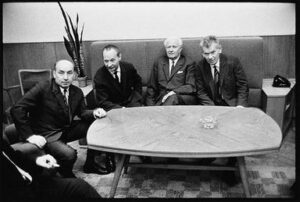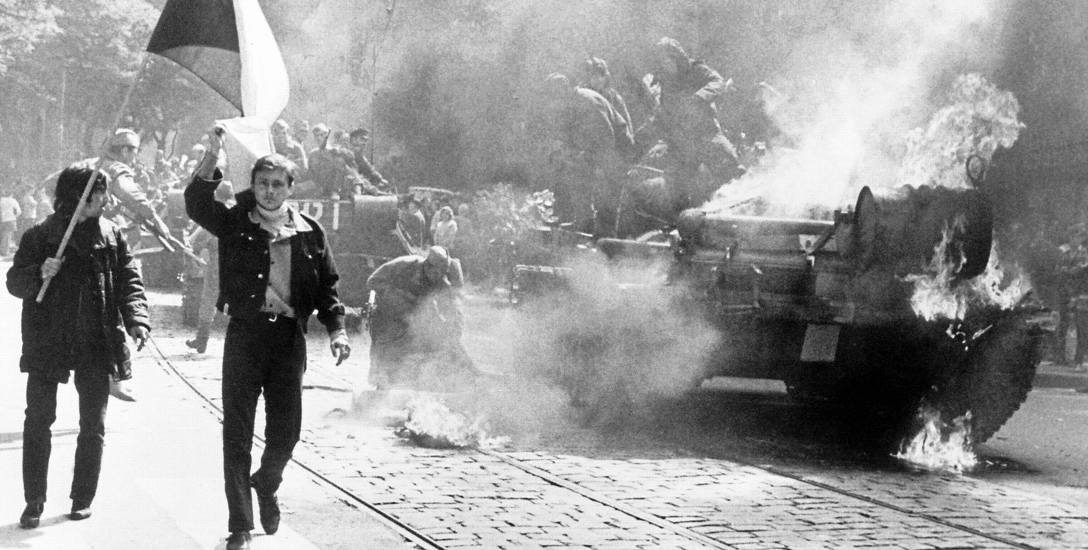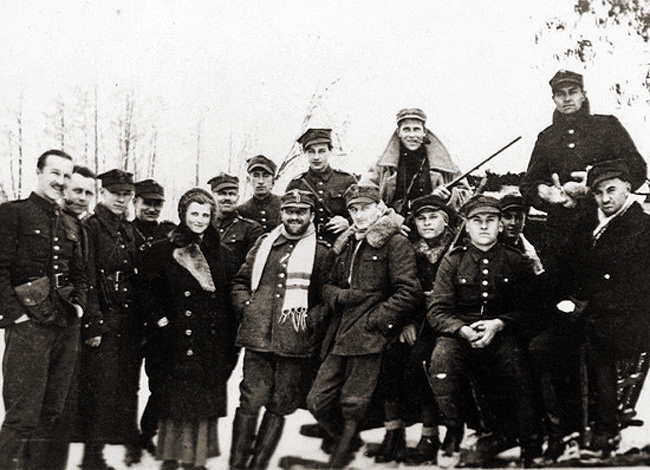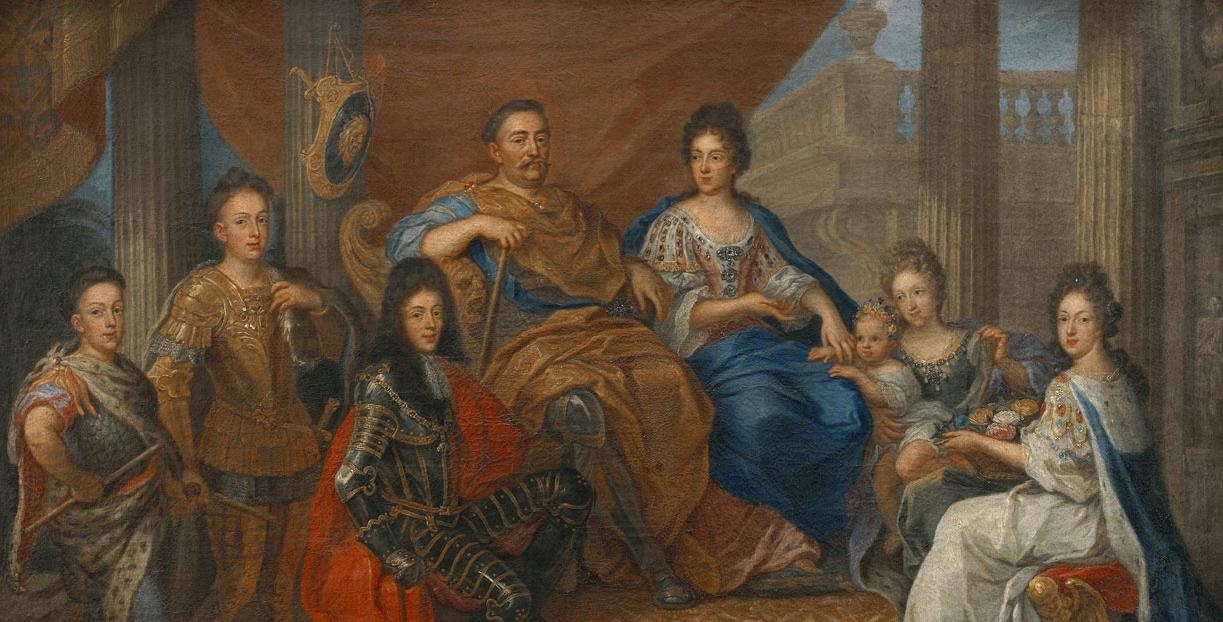“Prague Spring” is a journalistic description of the events in Czechoslovakia in 1968 when the communist party made an independent attempt at reform. They sought to modernize the party and make it more efficient, as well as liberalize its policy. They also wanted to democratize the country, although the word itself – at least in the beginning – was not very popular.
by Andrzej Krawczyk
The “Prague Spring” lasted eight months, beginning on 5 January 1968 when Alexander Dubček was appointed party leader. This relatively short period allowed for the formation of the first elements of civil society. From the very beginning, the “Prague Spring” experiment attracted people’s attention across Western Europe. Prague Spring ended on 21 August 1968, with the occupation of Czechoslovakia by the armies of five Warsaw Pact countries (also including, unfortunately, a contingent of the Polish Army that numbered more than 30,000).

The supporters and actors in the events of the first half of 1968 wanted to believe that their attempt to democratize communism would create something positive or even great. Unfortunately, the tanks and allies of the Soviet Union foiled this attempt.
Forced early Spring
From the mid-1960s, all the countries of the communist camp were talking about the need to reform their economic mechanisms. This conversation was spurred by stagnation and increasing difficulties in meeting even the most basic needs of their populace. The first Czechoslovak reform was adopted in Prague in September 1964, but it turned out to be insufficient, and more severe changes were needed. A team headed by the economist Ota Šik was established, and she was appointed deputy prime minister.
The 4th Congress of the Union of Czechoslovak Writers in July 1967 played an essential role in the birth of a new and less-restrictive atmosphere in which several writers dared to criticize the severity and irrationality of censorship. One of them, Pavel Kohout, even dared to liquidate the Writers Union. Of course, proposals of possible reforms came from various sources. An interesting ideological ferment, although not fully noticed in Prague, arose in Slovakia. It was a reaction to the centralist constitution of 1960 and the head of the communist party and president, Antonín Novotný, whose behavior was often offensive to Slovaks.
The overthrow of Novotný, the arrival of Dubček
It is no wonder that the Slovak apparatchiks were the ones to criticize the party leader for the first time. In October 1967, the secretary of the Central Committee of the Slovak Party (in the structure of the Communist Party, the Slovak Communist Party functioned as a collective member of the national party) was openly criticized by the then little-known Alexander Dubček at a meeting of the Central Committee of the Communist Party of the Slovak Republic. He criticized the privileging of Czechia at the expense of Slovakia, Czech paternalism, and the excessive concentration of power in the hands of Novotný. It is believed that the so-called group of reformers, fearing a frontal action against the conservatives (“the party concrete”), persuaded Dubček to take action. He had been rather indecisive up until then, coming from outside the top party leadership, and he had a reputation as a faithful man of Moscow.

Antonín Novotný tried to counterattack, appealing to the head of the Soviet party, Brezhnev, whom he invited to Prague in December 1967. However, Brezhnev did not like Novotny. When various factions approached him, he uttered a sentence that went down in history, “Eto vashe delo” (It’s your business), cementing his lack of interest in sorting out Czechoslovakia’s disputes.
In Czechoslovakia, this position was read as Soviet consent to the removal of Novotný. At the Central Committee plenum on the night of 4-5 January 1968, he was dismissed from the position of party leader, and Alexander Dubček was elected his successor. As a provincial man without much influence, he seemed to be a compromise candidate for both conservatives and reformers.
Meanwhile, the reformers from the Central Committee started working. One of the secretaries of the Central Committee, Zdeněk Mlynář, once an active Stalinist in the field of law, led the team for legal and political reforms. The philosopher Radovan Richta, another former Stalinist, organized a team to analyze the consequences of the scientific and technological revolution for the communist system. It was Radovan Richta who suggested to Alexander Dubček to name the new policy of the party as “socialism with a human face”.

Socialism with a human face
From that moment on, the party worked on changes that would fix the collapsing economy modernize the functioning of the state and society. The Action Plan, published in April, set out a transformation of the functioning of the communist party apparatus and state administration. Lower levels of management were to be given more powers, and the introduction of limited market rules was envisaged. Political or ideological pluralism was not taken into consideration at all. Reforms were also to be limited to domestic matters; the leadership role of the USSR was not questioned. A significant part of the state reform was to rehabilitate the victims of the 1950s trials, often communists, which was painfully felt by the circles associated with the government apparatus. The calls for the abolition of censorship and the possibility of free travel abroad were surprising postulates.

The ideological ferment had been introduced. Discussion became a new element of the political reality. Although it took place within the framework of Marxism and party newspeak, unprecedented things started to occur. A discussion was launched on how to understand the “leading role of the party,” how to control the activities of the secret services, what role the parliament should play, whether the freedom to create social organizations should be declared (even if right-wing and anti-socialist groups were to be deprived of this), whether there should be censorship and – finally – whether Czechoslovakia should be a centralized state or a Czech-Slovak federation. Meetings at workplaces, editorial offices, and universities dragged on for hours; there were lines in the streets for newspapers.
However, not much happened regarding the legal changes. On 4 March, the abolition of censorship was announced, and trips abroad were also allowed without the need to apply for a passport. The fundamental reforms were to be passed at the communist party congress, announced at the beginning of September 1968.
The comrades get nervous
The ideological ferment in Czechoslovakia caught the attention of party observers in the Soviet Union, Poland, and East Germany. In Poland, Władysław Gomułka, after his experiences with students in March 1968, watched the developments in Prague with growing reluctance, especially when he was supposedly informed (although this has never been confirmed) about the appearance of graffiti in the country stating “Poland is waiting for its own Dubček.”

Moscow, at the urging of Gomułka and Ulbricht, convened a meeting of the heads of the communist parties of their bloc in Dresden on 23 March (without the participation of the Romanian delegation), at which time the Czechoslovak party leadership was to be “examined” on the situation in their country. Dubček reassured them that he was fully in control. However, the participants of the meeting remained in a state of increased vigilance. In Moscow, Berlin, and Warsaw, the Czech press was closely followed, and in Prague, they ensured “ideological correctness” and proper language.
“Akční program”
The initial assumptions of the party’s new policy were published on 5 April. This document was of great importance in shaping the social atmosphere. Reforms and the need for change became the slogan of the day. People took advantage of every loosening of the ideological corset. Within weeks, civil society was revived. The party leadership began to meet “with the public” in Prague. At the end of March, the Club of Former Political Prisoners K-231 (the article which allowed their conviction for their views in the 1950s) was established. Thousands of people applied for passports. The organization of communist scouts broke up, and a new scout movement began.
However, party conservatives also mobilized, reaching out to loyal associates in the security service, the militia, and journalists. They established contacts with the Soviet embassy and tried to convince its employees of the threat of the collapse of socialism and the strength of anti-Soviet sentiment, outlining a vision of NATO’s preparations for “tearing out” Czechoslovakia from the Warsaw Pact. The number of critical articles about Czechoslovakia appearing in East Germany, the Soviet Union, and Poland increased.
In May-June, people involved in social life noticed a slowdown in the pace of reform, greater self-censorship of the press, and leaders’ moderating speeches declaring that the party would not allow any anti-socialist, anti-Soviet, social-democratic, and Catholic experiments.
How were the Two Thousand Words Created?
A group of professors asked the writer Ludvík Vaculík to write an article that would be a call to reform, a manifesto of support for the party’s new policy. According to the widow of Vaculík, the text was inspired by František Kriegel, a reformist member of the Presidium of the Central Committee (Political Bureau), a former advisor to Fidel Castro on building socialism in Cuba, and a former militant communist. He came from Poland, or more precisely from Stanisławów (present-day Ivano-Frankivsk) in Galicia, and was the only member of the Communist Party leadership who did not sign the Moscow Protocol on 27 August; a document stating that the interveners were right and that “thanked them for their brotherly help.” Vaculík wanted to create a manifesto that would have the “power to shout” and at the same time carry the power of persuasion. Featuring an electrifying title and style, the entire text would go down in history. It appeared on 27 June 1968 on the front pages of the then-most popular weekly “Literární Listy” as well in three popular dailies. Incidentally, this meant that an important part of the apparatus of power was behind the decision to publish it.

The article began with an analysis of the situation in Czechoslovakia: “After enjoying great popular confidence immediately after the war, the communist party by degrees bartered this confidence away for office, until it had all the offices and nothing else. We feel we must say this, it is familiar to those of us who are communists and who are as disappointed as the rest at the way things turned out. The leaders’ mistaken policies transformed a political party and an alliance based on ideas into an organization for exerting power, one that proved highly attractive to power-hungry individuals eager to wield authority, to cowards who took the safe and easy route, and to people with bad conscience”. wrote Vaculík.
It also stated the following: “Since the beginning of this year we have been experiencing a regenerative process of democratization. It started inside the communist party […] It must also be added, of course, that the process could have started nowhere else. For after twenty years the communists were the only ones able to conduct some sort of political activity […] The effort and initiative now displayed by democratically minded communists are only then a partial repayment of the debt owed by the entire party to the non-communists whom it had kept down in an unequal position. Accordingly, no thanks are due to the communist party, though perhaps it should be granted that the party is making an honest effort at the eleventh hour to save its own honor and the nation’s.”
Vaculík argued, however, in favor of supporting Dubček as the party leader, writing: “To begin with we will oppose the view, sometimes voiced, that a democratic revival can be achieved without the communists, or even in opposition to them. This would be unjust, and foolish too. The communists already have their organizations in place, and in these we must support the progressive wing. […] Let us demand the departure of people who abused their power, damaged public property, and acted dishonorably or brutally. Ways must be found to compel them to resign”.
It is known that Brezhnev called Dubček regarding this article, warning him that it was an open counter-revolution. Next Moscow’s “Pravda” called the “Two Thousand Words” – “An open declaration of war against the communist party and the constitutional authorities”.
The “Two Thousand Words” was published with signatures of 70 well-known personalities: academics (e.g., Prof. Otto Wichterle, the inventor of contact lenses and a source of Czechoslovak pride), filmmakers (e.g., director Jiří Menzel), sportsmen (Emil and Dana Zátopek), scientists, poets (e.g., the future Nobel laureate Jaroslav Seifert), and singers. Among the signatories, there were also two members of the Central Committee of the Communist Party of the Czech Republic: the rector of the University in Prague and the leading party philosopher Karel Kosík. Within a few days, 170,000 signatures were collected under the Manifesto. Twenty thousand institutions, organizations, and party cells adopted resolutions supporting “Two Thousand Words” until it was no longer necessary to continue counting the votes of support…
Vaculík’s text caused anger in the party apparatus, even among the reformers, who believed that the disseminating it might risk turning the masses away from the party. Alexander Dubček personally cut himself off from it – no wonder, considering that when he was interviewed at the time, Brezhnev said that “there had been an act of open counter-revolution”. However, the public was delighted with the Manifesto.
The Central Committee was debating “Two Thousand Words” all night. Ultimately, it decided to reject the text as erroneous, “threatening democratization, and calling for a counter-revolution,” but in a slightly cowardly move added in their resolution that the intentions of the authors (that is, those who had signed first) “were good.” Josef Smrkovský, one of the leaders and symbols of the Prague Spring, openly and brutally threatened the authors of the text, accusing them of provoking conservatives, which could lead to a national disaster. However, it was the conservatives who raised the alarm. In Moscow, Berlin, and Warsaw, the party press cited Vaculík’s article as an example of “counter-revolutionary danger.” On 14 July, Moscow ordered the heads of the satellite communist parties to meet with Brezhnev but without Dubček. The article “Two Thousand Words” was the main topic on the agenda. It is rare in history that a single text caused such a political stir. An open letter was passed to the Central Committee of the Communist Party demanding opposition to the counter-revolution and the prohibition of any operations by “hostile” organizations.

The road to intervention and occupation was opened. On the night of 20-21 August, 400,000 soldiers from five Warsaw Pact armies entered Czechoslovakia. As the sad Czechoslovak joke proclaimed, they answered two thousand words with two thousand tanks. The reality was even sadder: the interveners possessed over 6,000 machines!
Polish echoes of the “Prague Spring”
The intellectual ferment in Czechoslovakia did not go unnoticed in Poland. It aroused attention both among ordinary people and intellectuals, as well as in the apparatus of power. A particular point of reference was the country’s fresh memory of the March events.
The removal of Adam Mickiewicz’s play “Dziady” from the Warsaw theater program at the end of January contrasted with the loosening of censorship in Czechoslovakia.

Protests by Polish students in March 1968 sparked sympathy in Czechoslovakia (although, of course, these were not the most important events of the day). Several universities adopted resolutions in sympathy with Polish students. Multiple articles were published in the Czech press condemning the repressive policy of the Polish party and offices towards people of Jewish origin, the punitive conscription of students to the army, and the dismissal of professors from work under accusations of “lying to students and misleading them”.
After the invasion of 21 August 1968, Warsaw protested several times against this intervention by laying flowers in front of the Czech Culture Center at Marszałkowska St. in the center of Warsaw. The security service, in its reports, noted a total of 2,147 leaflets and 86 slogans on the walls, protesting the occupation of Czechoslovakia. As a result, 80 people were temporarily detained in connection with the flyers and wall inscriptions (several people were sentenced to imprisonment for up to several months).

The most famous act of protest was a letter of support and sympathy from the famous Polish writer Jerzy Andrzejewski to the chairman of the Czechoslovakian Writers’ Union, Eduard Goldstücker. Public declarations of similar nature by Sławomir Mrożek and the famous painter Jan Lebenstein appeared in the Parisian “Le Monde”, as well as in the most important Polish émigré journal “Kultura”. The composer Zygmunt Mycielski and Kazimierz Wierzyński also published the poem “For the death of Jan Palach”. Some historians include the dramatic act of self-immolation in 1968 carried out by a former Home Army soldier, 59-year-old engineer Ryszard Siwiec from Przemyśl at the stadium in Warsaw among the series of protests against the intervention. The withdrawal of three scientists of the Polish Academy of Sciences – Bronisław Geremek, Krystyna Kersten and Tadeusz Łebkowski – from the Polish United Workers’ Party in protest against Poland’s participation in the occupation of Czechoslovakia, made a great impression in Polish and foreign intellectual circles.

Since 1977, the two most famous opposition groups referring to the tradition of the “Prague Spring” and “Two Thousand Words”: the Czech Charter 77 and the Polish Workers’ Defense Committee, maintained contacts, informed recipients in their respective countries about the activities of the opposition in Prague and Warsaw and about repressions of the authorities. In October 1977, the Workers’ Defense Committee published an open “Letter to Czech and Slovak Friends”, in which the “Prague Spring” was directly mentioned. In August 1978, on the 10th anniversary of the “Prague Spring” and its suppression, representatives of both circles met in the Karkonosze (Krkonoše) Mountains. They issued a statement on the joint struggle for democracy. A year later, on 3 October 1979, a group from the Workers’ Defense Committee and the Movement for Defence of Human and Civic Rights jointly organized a hunger strike in the Church of the Holy Cross in Warsaw in defense of arrested Czech and Slovak dissidents.
In October 1981, shortly before martial law in Poland, the Polish-Czechoslovak Solidarity organization started and still exists today. The two largest actions of this organization, from a historical perspective, were the Festival of Czechoslovak Independent Culture, which took place between 3-5 November 1989 in Wrocław, and the meeting of President Václav Havel and the chairman of “Solidarity” Lech Wałęsa on 7 March 1990 at the Karkonosze Pass (symbolically referring to former illegal dissident meetings). Thus the two nations grew closer and learned to trust each other.
The meaning of “Prague Spring”
Most historians and political scientists believe that the communist system was unreformable and had mechanisms to block reforms built into its structure. 1968 is yet another proof of this. From this perspective, the intervention of the Warsaw Pact and the suppression of the reform movement does not seem surprising. Historians only have to describe the costume in which the “Prague Spring” was played out and develop a calendar of events. The discussion focuses on whether the intervention was a mistake of doctrinaires or evidence of a proper understanding of social mechanisms. Brezhnev’s advisers seemed to be aware that the slightest deconstruction of the communist system must not be allowed because “pulling out one brick would destroy the entire building”.
Author: Andrzej Krawczyk
Translation: Alicja Rose and Jessica Sirotin





